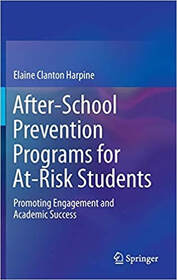
A 15-year-old high school freshman was brought to my reading clinic one year. She tested at the pre-kindergarten level in reading. She knew the consonant sounds, but none of the vowel sounds. She could not even read or recognize words with the short a vowel sound, such as cat or can. Nor could she read the word the. It took me 3½ years, but I taught her to read using vowel clustering. Her school used balanced literacy and one-on-one phonics tutoring. She had failed for nine straight years with systematic phonics tutoring. As I’ve said many times, phonics simply does not work for all students. The school said she would never be able to learn to read. Yet, she did learn, and she was very excited to be able to read.
If changing teaching methods can make up for 9 years of learning loss or failure, then yes, we can help each and every student who is struggling after the coronavirus pandemic. We can help students learn to read, but to do so, we must change the way we teach struggling students.
How Should We Start?
Many well-intentioned educators are saying that we should “stick with grade level curriculum.” They are saying, regardless how far behind or confused your students are, teach what is assigned for that grade level. I say, wrong. Such a policy will only cause more failure. Look at the example of our 15-year-old. If I had said that she is 15 years old and she is a freshman in high school; therefore, I must teach her freshman high school reading material, she would never have learned to read. She had failed for nine straight years; her failure was deeply ingrained. She did not believe she would ever learn to read. No, we must start where the confusion or failure begins. If the student is 15 years old and cannot read at the pre-kindergarten level—does not know even simple vowel sounds—then, obviously, I have to teach that student at the pre-kindergarten level, no matter her age or grade in school.
The same is true with students returning to the classroom after the coronavirus pandemic. We cannot teach them at the level they should be at in school; instead, we must teach them at the skill level they possess when they return to the classroom. If there are fourth-graders reading at the first grade level, then we must begin to rebuild by teaching them at the first grade level. Using this method, I really have had students move up four grade levels in reading in one school year. When it comes to reading, you cannot skip around. The student must learn one step at a time. This is how we teach with vowel clustering.
Why Did Phonics Not Work?
As Dr. Mark Seidenberg states in his book, Language at the Speed of Sight: How We Read, Why so Many Can’t, and What Can Be Done About It, the reason phonics did not work for my 15-year-old student and for many students is that it does not connect with oral speech. Vowel clustering works directly with the oral language system. This is why we have been so successful.
Earlier Post: Reading Wars and How Should We Teach Children to Read?
Earlier Post: Reading Wars Are Over! Who Won? Certainly Not the Students
As Dr. Seidenberg goes on to explain, real scientific research has had little effect on how reading is being taught in the classroom. If we simply return students to the classroom and do not change how we teach reading, reading failure will continue. At present, the Nation’s Report Card shows that 65% of fourth graders tested below grade level when they took the test in 2019. These test scores were before the coronavirus pandemic.
Yes, we have a problem in reading education, and that problem is only going to get worse. The only way we can get rid of reading failure is to change how we teach children to read. Phonics simply does not work for struggling students. As Dr. Jeffrey S. Bowers explains “the strength of evidence for phonics has been exaggerated…. the evidence for phonics is weak.”
So, if phonics does not work for struggling at-risk students, what should we do? I have been successful using vowel clustering with failing and struggling students. Eight years of research document my success.
Will All of The Education Problems Be Solved Just by Sending Children Back into the Classroom?
No, we also need to be careful about how we reopen schools. Chad Aldeman, a policy director of the Edunomics Lab at Georgetown University, encourages us to look back at history. He states that past disasters, especially the 1918 pandemic, should teach us the path that we should follow.
“Without a plan for recovery focused on students’ needs, we’ll be condemning a generation of children to worse academic and economic outcomes throughout their life. Looking back in time, the children born during the 1918 flu pandemic had lower educational attainment, increased rates of physical disability, lower income and a greater reliance on government welfare. With hindsight, we have an opportunity to learn from the evidence of past disasters and take action now to make sure the same results don’t happen again.”

 RSS Feed
RSS Feed
